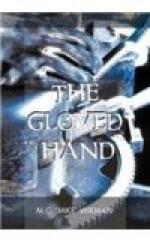“In what way?”
“I thought he might be interested to know what I was doing, and two or three months ago, I called and asked to see him. Instead of seeing me, he sent word by a black-faced fellow in a white robe that neither he nor his daughter wished to see me again.”
His face was red with the remembered humiliation.
“I wrote to Miss Vaughan once, after that,” he added, “but my letter was not answered.”
“Evidently she didn’t get your letter.”
“Why do you think so?”
“If she had got it, she would have known that you were no longer at 1010 Fifth Avenue. Her father, no doubt, kept it from her.”
He flushed still more deeply, and started to say something, but I held him silent.
“He was justified in keeping it,” I said. “You had promised not to write to her. And I don’t see that you have given me any reason why I should assist you against him.”
“I haven’t,” Swain admitted more calmly, “and under ordinary circumstances, my self-respect would compel me to keep away. I am not a fortune-hunter. But I can’t keep away; I can’t stand on my dignity. When she calls for aid, I must go to her, not for my own sake but for hers, because she needs to be protected from her father far more than from me.”
“What do you mean by that?” I demanded.
“Mr. Lester,” he said, leaning forward in his chair and speaking in a lowered voice and with great earnestness, “her father is mad—I am sure of it. No one but a madman would live and dress as he does; no one but a madman would devote his whole time to the study of the supernatural; no one but a madman would believe in the supernatural as he does.”
But I shook my head.
“I’m afraid that won’t do, Swain. A good many fairly sane people believe in the supernatural and devote themselves to its study—there is William James, for instance.”
“But William James doesn’t dress in flowing robes, and worship the sun, and live with a Hindu mystic.”
“No,” I smiled, “he doesn’t do that,” and I thought again of the mysterious light and of the two white-clad figures. “Does he live with a Hindu mystic?”
“Yes,” said Swain, bitterly. “An adept, or whatever they call it. He’s the fellow who kicked me out.”
“Does he speak English?”
“Better than I do. He seems a finely-educated man.”
“Is he a lunatic, too?”
Swain hesitated.
“I don’t know,” he said, finally. “I only saw him once, and I was certainly impressed—I wasn’t one, two, three with him. I suppose mysticism comes more or less natural to a Hindu; but I’m convinced that Mr. Vaughan has softening of the brain.”
“How old is he?”
“About sixty.”
“Has he always been queer?”
“He has always been interested in telepathy and mental suggestion, and all that sort of thing. But before his wife’s death, he was fairly normal. It was her death that started him on this supernatural business. He hasn’t thought of anything else since.”




